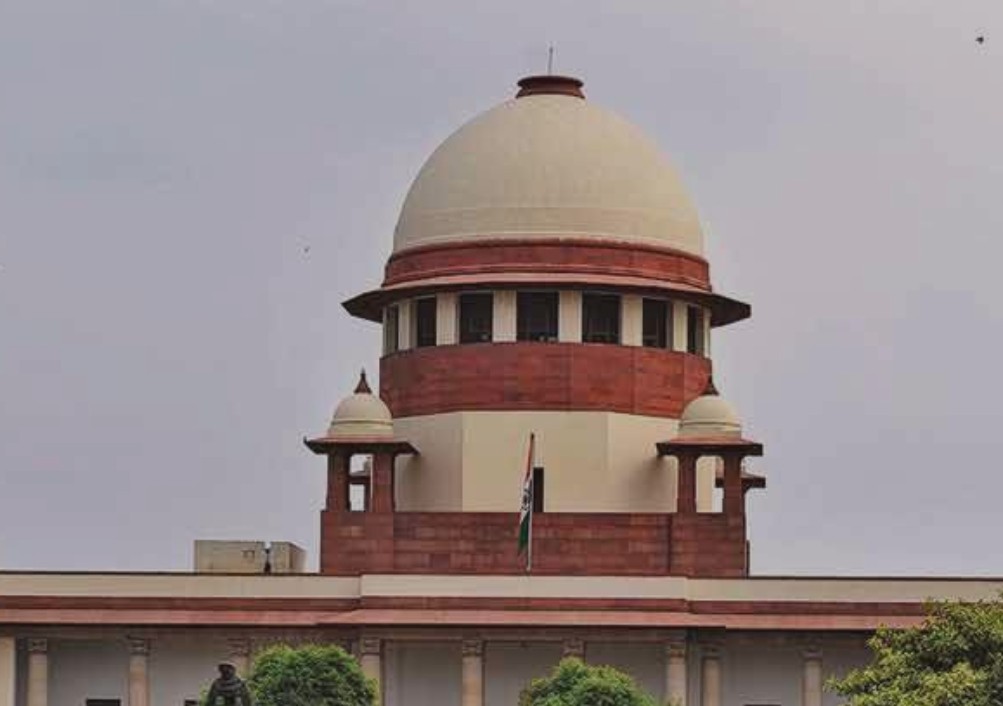States can apply to UGC for extension of exam deadline: Supreme Court

New Delhi, August 28: States are empowered under the Disaster Management Act to override University Grants Commission (UGC) exam guidelines in order to protect human lives amid the COVID-19 pandemic, the Supreme Court held on Friday.
A three-judge Bench led by Justice Ashok Bhushan upheld the power of a State and its disaster management authority to countermand the revised UGC guidelines of July 6 to conduct the final year and terminal semester examinations by September 30, The Hindu reported.
“In case of a disaster, the priority of all authorities under the Disaster Management Act, 2005 is to immediately combat the disaster and contain it to save human life. Saving of life of human being is given paramount importance,” Justice Bhushan, who authored the 160-page judgment for the Bench, emphasised.
But the court held that the powers of the States under the Disaster Management Act do not extend to promoting students on the sole basis of their internal assessment without taking exams.
“When the State Disaster Management Authority and State government take a decision that for mitigation or prevention of disaster it is not possible to hold physical examination in the State, the decision is within the four corners of Disaster Management Act, 2005. However, their decision that students should be promoted without appearing in the final year examination is not within the domain of the Act”, the Bench, also comprising Justices R. Subhash Reddy and M.R. Shah, concluded.
In future, if any State found it impossible to conduct the exams by September 30 and wanted to postpone them, it could apply to the UGC, which would consider the request and decide at the earliest, the court directed.
Justice Bhushan, however, disagreed that the revised UGC guidelines was “unreasonable” and a violation of the right to life of students and examiners.
The July 6 guidelines were based on the recommendations of the R.C. Kuhad Expert Committee, the court pointed out. They were issued in the interests of students. They provided three modes of examination – pen and paper, online and blended (both physical and online). A “special chance” was also given to students unable to take the exams. It said universities were moreover given time from July 31 to September 30 for preparations.
Justice Bhushan drew attention to clause 6 of the revised guidelines, which insist that exams can be held only if universities follow the safety protocols. The Centre, too, had pitched in with guidelines.
“The Standard Operating Procedure for conduct of examination makes it abundantly clear that the UGC, MHRD [Ministry of Human Resource Development] and the Ministry of Health and Family Welfare were fully concerned with the health of students and exam functionaries”, the court held.
Justice Bhushan said the UGC was well within its rights to fix “uniform” dates for the exams despite some States being worse off. “The UGC had rightly fixed a date for completion of the final-year examination throughout the country to maintain uniformity in the academic calendar”, Justice Bhushan justified.
The court said the July 6 guidelines did not discriminate against final year students by compelling them to take exams while their juniors were promoted on their internal assessment marks.
“Final year exam is an opportunity for a student to show his optimum calibre. It paves his future career both in academics and employment”, Justice Bhushan noted.
The court held that the UGC was not obliged to consult universities or States before the issuance of the July 6 guidelines. Besides, States and varsities cannot dismiss UGC guidelines as being merely advisory. They were necessary for the “determination of standards in institutions of higher education”. The UGC (Minimum Standards of Instruction for the Grant of the Master’s Degree through Formal Education) Regulations, 2003, categorically required universities to adopt the guidelines, it stated.
The revised guidelines were issued because exams could not be conducted between March to June due to the pandemic, the court reminded. The judgment nevertheless pointed out that some varsities had completed the exams, others held it partially and some were yet to commence.
Sign up for our weekly newsletter to stay up to date on our product, events featured blog, special offer and all of the exciting things that take place here at Legitquest.




Add a Comment